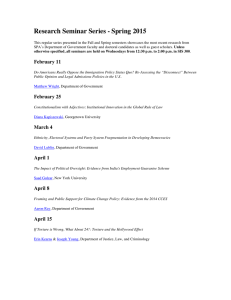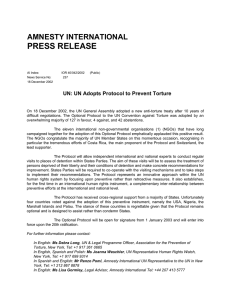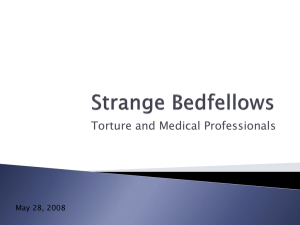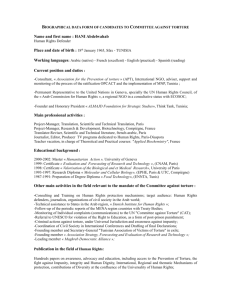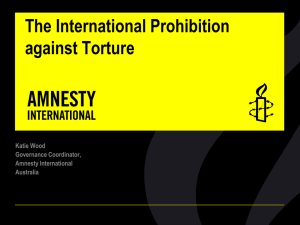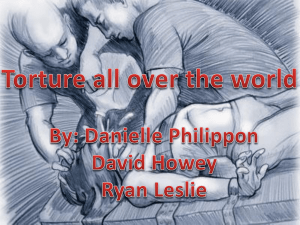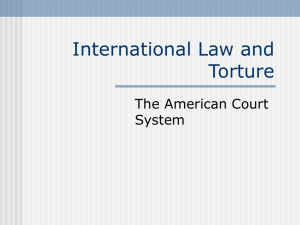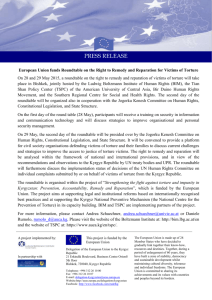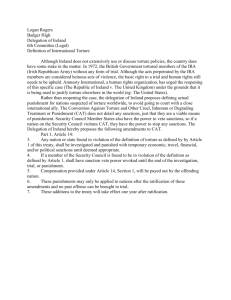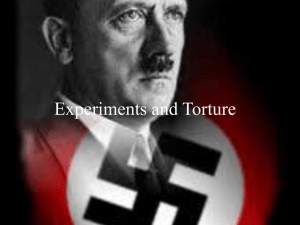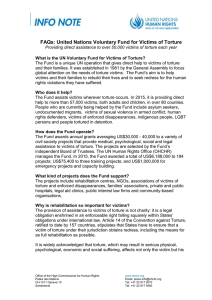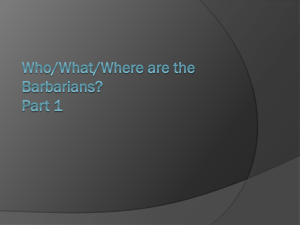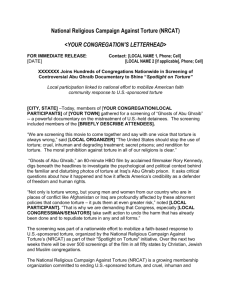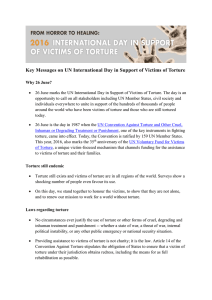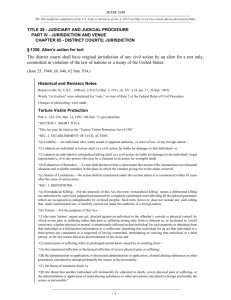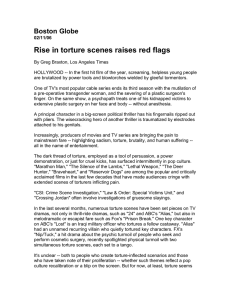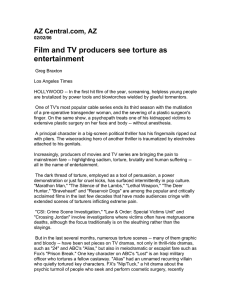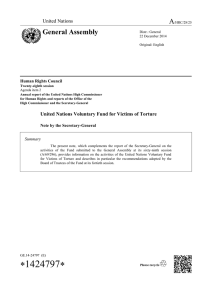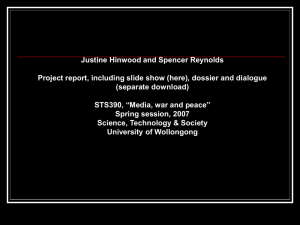The book should be read by all interested and involved parties, for it
advertisement
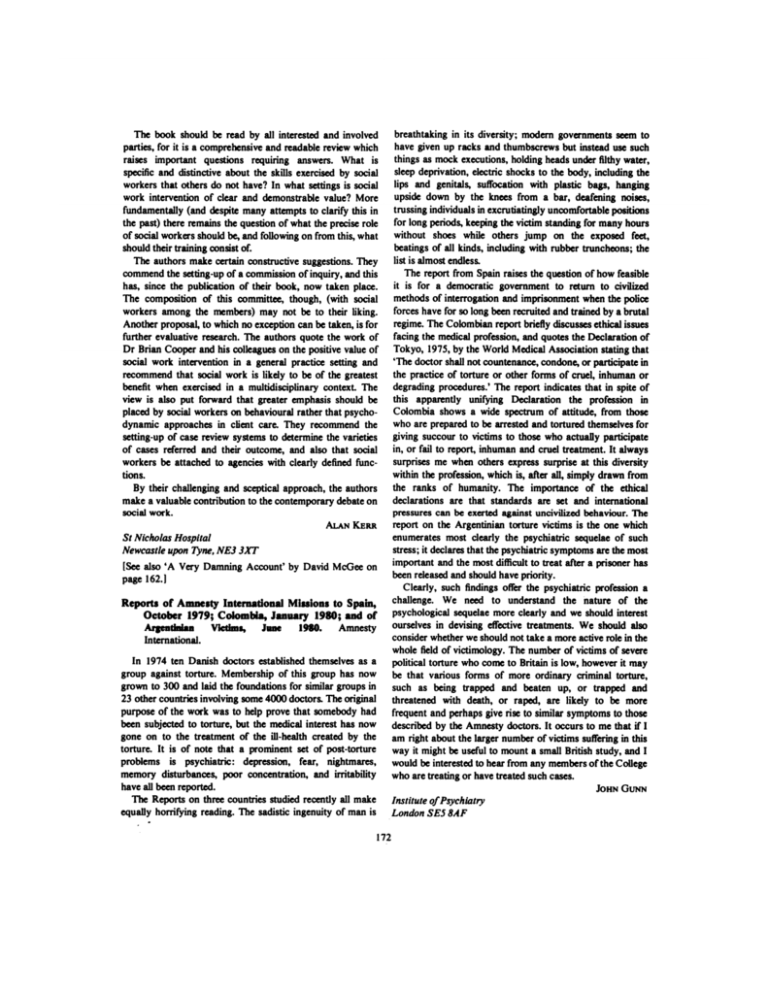
The book should be read by all interested and involved parties, for it is a comprehensive and readable review which raises important questions requiring answers. What is specific and distinctive about the skills exercised by social workers that others do not have? In what settings is social work intervention of clear and demonstrable value? More fundamentally (and despite many attempts to clarify this in the past) there remains the question of what the precise role of social workers should be, and following on from this, what should their training consist of. The authors make certain constructive suggestions. They commend the setting-up of a commission of inquiry, and this has, since the publication of their book, now taken place. The composition of this committee, though, (with social workers among the members) may not be to their liking. Another proposal, to which no exception can be taken, is for further evaluative research. The authors quote the work of Dr Brian Cooper and his colleagues on the positive value of social work intervention in a general practice setting and recommend that social work is likely to be of the greatest benefit when exercised in a multidisciplinar)- context. The breathtaking in its diversity; modern governments seem to have given up racks and thumbscrews but instead use such things as mock executions, holding heads under filthy water, sleep deprivation, electric shocks to the body, including the lips and genitals, suffocation with plastic bags, hanging upside down by the knees from a bar, deafening noises, trussing individuals in excrutiatingly uncomfortable positions for long periods, keeping the victim standing for many hours without shoes while others jump on the exposed feet, beatings of all kinds, including with rubber truncheons; the list is almost endless. The report from Spain raises the question of how feasible it is for a democratic government to return to civilized methods of interrogation and imprisonment when the police forces have for so long been recruited and trained by a brutal regime. The Colombian report briefly discusses ethical issues facing the medical profession, and quotes the Declaration of Tokyo, 1975, by the World Medical Association stating that 'The doctor shall not countenance, condone, or participate in the practice of torture or other forms of cruel, inhuman or degrading procedures.' The report indicates that in spite of view is also put forward that greater emphasis should be placed by social workers on behavioural rather that psychodynamic approaches in client care. They recommend the setting-up of case review systems to determine the varieties of cases referred and their outcome, and also that social workers be attached to agencies with clearly defined func tions. By their challenging and sceptical approach, the authors make a valuable contribution to the contemporary debate on social work. ALAN K.ERR St Nicholas Hospital Newcastle upon Tyne, NE3 3XT (See also 'A Very Damning Account' by David McGee on page 162.] Reports of Amnesty International Missions to Spain, October 1979; Colombia, January 1980; and of Argentinian Victims, June 1980. Amnesty International. In 1974 ten Danish doctors established themselves as a group against torture. Membership of this group has now grown to 300 and laid the foundations for similar groups in 23 other countries involving some 4000 doctors. The original purpose of the work was to help prove that somebody had been subjected to torture, but the medical interest has now gone on to the treatment of the ill-health created by the torture. It is of note that a prominent set of post-torture problems is psychiatric: depression, fear, nightmares, memory disturbances, poor concentration, and irritability have all been reported. The Reports on three countries studied recently all make equally horrifying reading. The sadistic ingenuity of man is 172 this apparently unifying Declaration the profession in Colombia shows a wide spectrum of attitude, from those who are prepared to be arrested and tortured themselves for giving succour to victims to those who actually participate in, or fail to report, inhuman and cruel treatment. It always surprises me when others express surprise at this diversity within the profession, which is, after all, simply drawn from the ranks of humanity. The importance of the ethical declarations are that standards are set and international pressures can be exerted against uncivilized behaviour. The report on the Argentinian torture victims is the one which enumerates most clearly the psychiatric sequelae of such stress; it declares that the psychiatric symptoms are the most important and the most difficult to treat after a prisoner has been released and should have priority. Clearly, such findings offer the psychiatric profession a challenge. We need to understand the nature of the psychological sequelae more clearly and we should interest ourselves in devising effective treatments. We should also consider whether we should not take a more active role in the whole field of victimology. The number of victims of severe political torture who come to Britain is low, however it may be that various forms of more ordinary criminal torture, such as being trapped and beaten up, or trapped and threatened with death, or raped, are likely to be more frequent and perhaps give rise to similar symptoms to those described by the Amnesty doctors. It occurs to me that if I am right about the larger number of victims suffering in this way it might be useful to mount a small British study, and I would be interested to hear from any members of the College who are treating or have treated such cases. JOHN GUNN Institute of Psychiatry London SES 8AF
